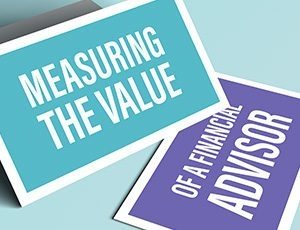Measuring the Value of a Financial Advisor
What’s the value of a financial advisor?
Two studies found that working with a financial professional can result in higher returns and potentially lower personal stress.
Lower Stress
Seventy-six percent of people within 15 years of retirement are stressed when thinking about retirement savings and investments.¹
Working with a financial advisor to develop a written retirement income strategy, however, can increase your confidence and happiness, according to Franklin Templeton’s annual Retirement Income Strategies and Expectations Survey.
With and Without²
| Investors… | Confident with plan | Happy with plan |
| With an advisor | 91% | 92% |
| Without an advisor | 44% | 44% |
Higher Returns
In addition to providing financial guidance, financial advisors may also add about three percentage points in net portfolio returns over time, according to a study by Vanguard.³
Financial Advisor Advice Components⁴
| Advice | Advice Elements | Potential Added Return to Investor Portfolio |
| Portfolio Construction | Asset allocation Asset location |
Up to 1.2% |
| Wealth Management | Rebalancing Drawdown strategies |
Up to over 1% |
| Behavioral Coaching | Managing investor emotions Aiding decision-making |
Up to 1.5% |
It’s important to remember that financial advisors also may offer guidance that wasn’t measured in the two studies. Advisors can help develop strategies that protect against the financial consequences of loss of income, and coordinate with other financial professionals on tax and estate management.
- Franklin Templeton, 2015
- Franklin Templeton, 2015
- Vanguard.com, 2015
- Vanguard.com, 2015

